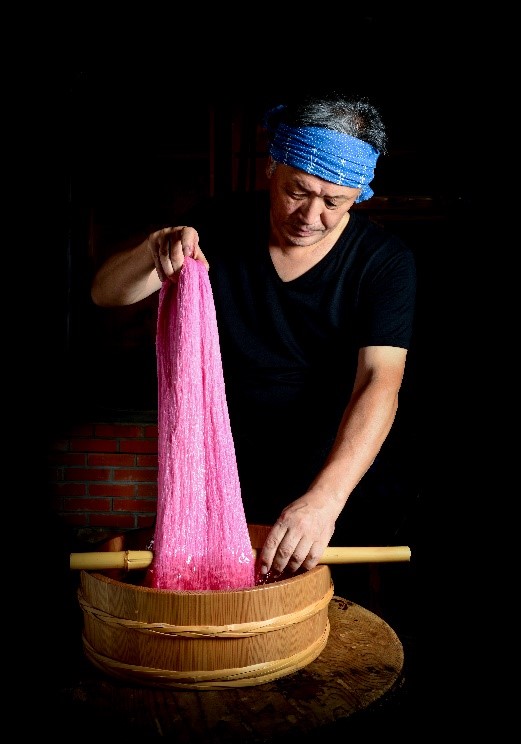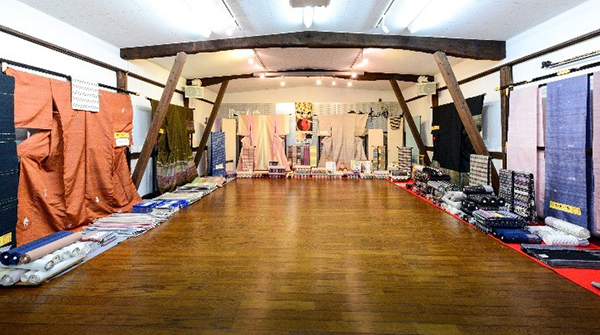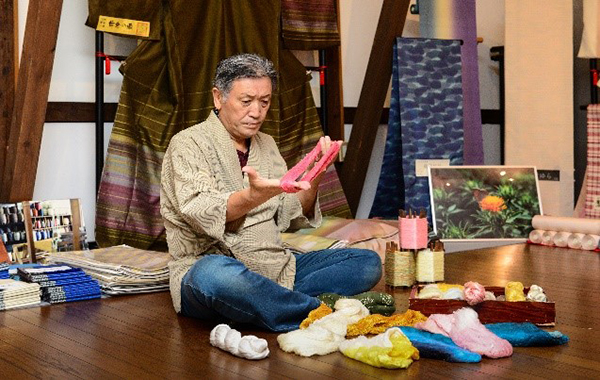


Company Name
SAIEI TEXTILE
Year of establishment
Established in 1954, in operation since 1923
Type of industry
Manufacturing, sales of dyed textiles (Some-ori)
Main products
dyed textiles (Some-ori)
Post code
992-0054
Company address
5-58 4-chome Jyosei Yonezawa Yamagata Japan
Representative
Eisuke SAITO
T E L
+81-(0)238-23-0918
F A X
+81-(0)238-23-3580
Main selling channels
https://www.wakuwakukan.co.jp/
Available language
Japanese
Yonezawa-ori is a range of woven textiles unique to Yonezawa that has a long history. It is popularly believed that the craft originated after Naoe Kanetsugu (1560–1620), chief retainer to Uesugi Kagekatsu (the second head of the Uesugi clan and first lord of Yonezawa domain) introduced ramie—a raw material for fabric—as a fiber crop. Ramie production and weaving evolved into the production of woven silk fabric after the ninth lord of the Yonezawa domain, Uesugi Yozan, encouraged silk farming and turned Yonezawa into one of the country’s major producers during the mid-Edo period (1603 to 1868). Although no longer Yonezawa’s core industry, Yonezawa-ori is still produced locally as a textile with an appeal like no other. As the third-generation successor to this business, I am hoping to create and widely showcase innovative and unique products capable of responding to current needs while demonstrating timeless craftsmanship.
Our major products today include benibana (safflower), ai (indigo) and other plant-dyed kimono and obi (belts worn with kimonos).Fabric for these garments and accessories are woven on our trustworthy wooden power loom—built more than 50 years ago and still in perfect working order—because wooden looms weave silk into fabric that is exceptionally comfortable to wear.Aside from kimono and obi, we design and explore materials for neckties, scarves, handbags, clothing and other Western-style wardrobe accessories, hoping to expand the application of fabrics traditionally used for kimono.We are also keen to internationally showcase Yonezawa’s woven textiles.Another activity close to our heart is training the future practitioners of this craft.We are certified by the Association for the Promotion of Traditional Craft Industries, and currently host four trainees.